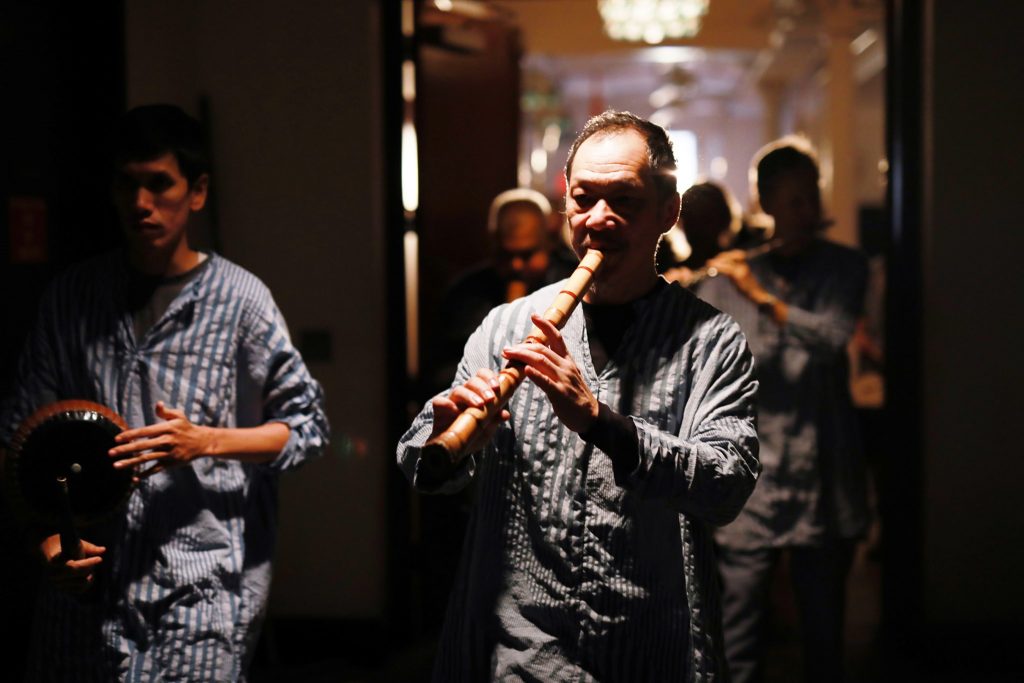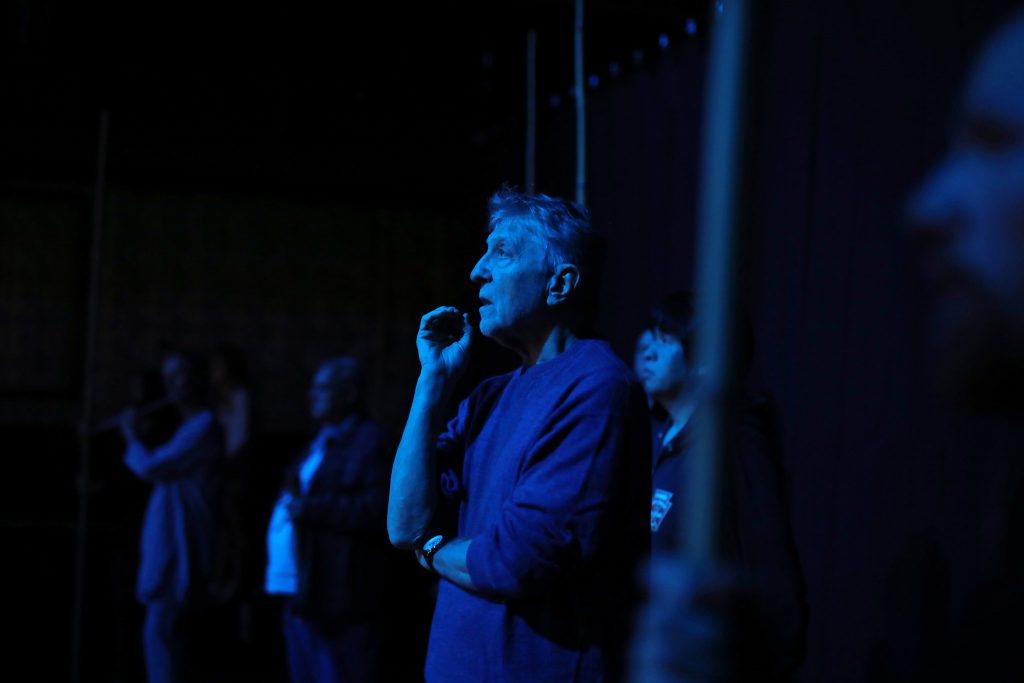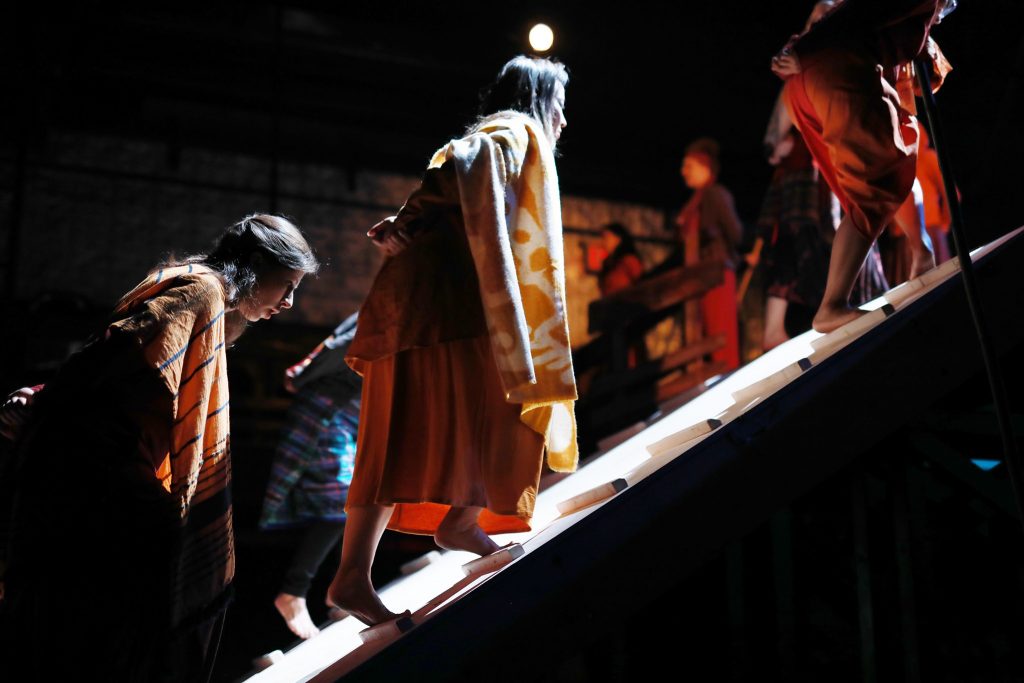We watched astonished as the Greeks burst in, pikes leveled, horns blaring, a song of victory on their lips. We said nothing as they mocked us in strange tongues and herded us into the great hall to witness scenes of horror. To see mothers and daughters carted away in separate cages. A princess dragged off to slavery at the end of a red noose. A captive hurled from the ramparts to die at our feet. Women stripped and struck and spat upon, smeared with mud and blood and raped and crucified. Scenes of lamentation and mourning so nakedly private we felt ashamed to watch. But the walls had been breached. Troy lay in ruins. There was nothing left to do but watch it burn.

It’s a start, but where do you go from here? How do you review a play when the only adequate response is silent wonder? When analysis feels like a scalpel applied to a living thing, a rare specimen of the purest form of theatre—the Holy?
But you have to write something. So you describe your favorite scenes: the doomed survivors swaying and singing softly in the guts of Greek galleys, or the mother uttering strangled cries as she pours a libation into her daughter’s cupped hands, or the victim tumbling down the green-lit ramp in slow motion like a floating corpse drifting down a sickly stream. You praise the blend of musical styles and musical languages—Greek, Latin, Nahuatl, Navajo. You applaud the dedicated international ensemble, director Andrei Serban and composer Elizabeth Swados for creating this extraordinary work, La MaMa for producing it and keeping it running worldwide since its 1974 premiere.

Or you wax theoretical, go on about the unnerving duality of spectator as playgoer and conquered Trojan, about how the production immerses the audience in the tragedy almost to the point of complicity. Or maybe you use the play as a springboard for an erudite thesis: The Birth of Modern Tragedy from the Spirit of International Cooperation; The Paradox of Euripides as Proto-Feminist Playwright Writing for an Audience of Men; The Theater of Dionysus as the Birthplace of Empathy for the Conquered.
In the end you might even take a subjective turn and tell of the audience member who nearly fainted and had to be walked out. Or describe how it felt to be crammed in an elevator with a group of giggling children dressed as if for an Easter pageant, only to hear them hissing demonically at a funeral pyre an hour later.

But as an accurate account of what we saw and felt tonight, all of this is somehow inadequate. And as I reread what I’ve written and compare it to the vast wonder of “The Trojan Women,” I feel as if I’ve played the part of the learned astronomer in Walt Whitman’s poem:
When I heard the learn’d astronomer,
When the proofs, the figures, were ranged in columns before me,
When I was shown the charts and diagrams, to add, divide, and measure them,
When I sitting heard the astronomer where he lectured with much applause in the lecture-room,
How soon unaccountable I became tired and sick,
Till rising and gliding out I wander’d off by myself,
In the mystical moist night-air, and from time to time,
Look’d up in perfect silence at the stars.

If nothing else, maybe my review will compel someone to rise and go see this work of cosmic proportions before it closes December 15th. And that would be a good and useful thing. Because to see it is to be reminded that the theatre is not dying. Troy is fallen, but tragedy lives on. Attic Greek is no dead language as long as there are people alive to speak it onstage. And the message of empathy for the conquered is a timeless one that echoes through the ages.
“The Trojan Women” is playing at La MaMa through December 15th. For more information visit lamama.org.

